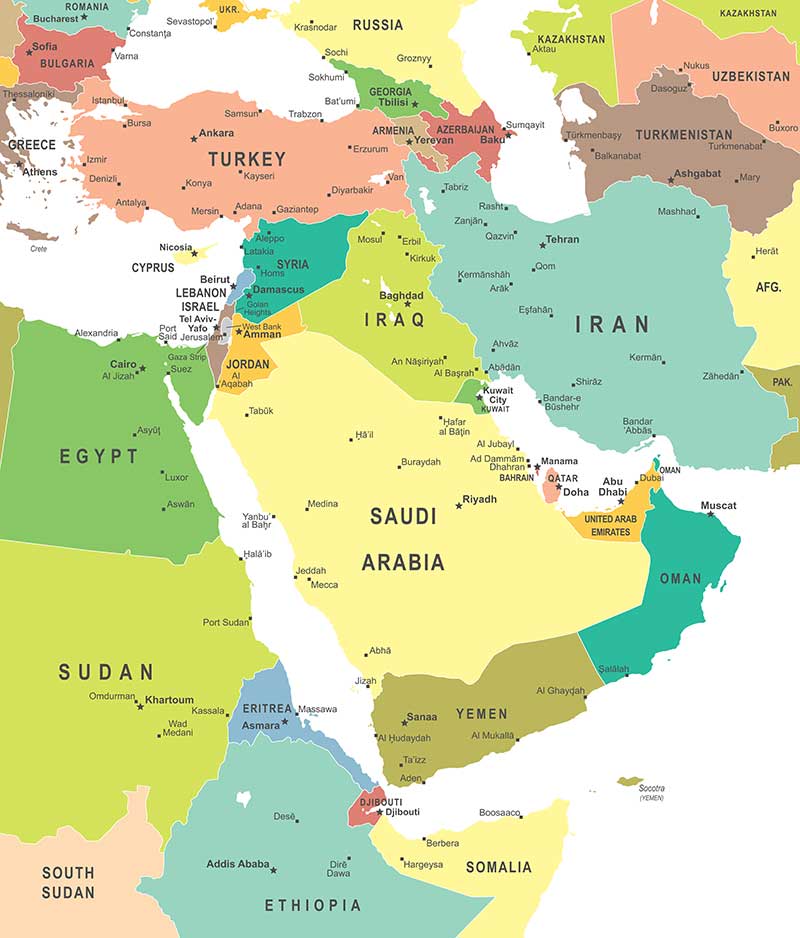Turkmenistan And United Arab Emirates Discuss Upgrading Bilateral Ties
Turkmenistan is continuing its regional integration objectives following decades of relative isolation as it continues to reach out to regional countries in efforts to maximise its potential as a regional trade transit hub and energy supplier. The latest bilateral talks have been with the United Arab Emirates (UAE), the collection of smaller Gulf States that includes among the seven member states, Abu Dhabi, and Dubai.
Turkmenistan’s Minister of Foreign Affairs, Rashid Meredov has held talks with the UAE Minister of State for Foreign Affairs and International Cooperation, Ahmed Ali Al Sayegh. During the discussions, the diplomats stressed the high level of trust-based cooperation between the leadership of both countries, while commenting on the development of trade and economic relations between them.
Both expressed interest in expanding the range of cooperation between public and private structures of Turkmenistan and the UAE and have formalized the Joint Committee on Cooperation between Turkmenistan and the UAE.

Turkmenistan is a member of the Commonwealth of Independent States (CIS) which also includes Armenia, Azerbaijan, Belarus, Georgia, Kazakhstan, Kyrgyzstan, Moldova, Russia, Tajikistan, Ukraine, and Uzbekistan. The CIS is not a Free Trade bloc, but does allow a mechanism for individual members to agree bilateral trade agreements with other member states. Other than this the country has no other trade agreements.
The UAE is a member of the Gulf Cooperation Council (GCC) which includes Bahrain, Kuwait, Oman, Qatar, and Saudi Arabia. The GCC has signed Free Trade Agreements with several countries including New Zealand, Singapore, and EFTA nations. Negotiations are currently underway with several countries and trade groups, including the European Union, Japan, China, South Korea, Australia, Pakistan, India, Turkey, and the Mercosur member countries (Argentina, Brazil, Paraguay and Uruguay).
Turkmenistan is an official guest of the Shanghai Cooperation Organisation (SCO) and is appears likely that in coming years the UAE will also take a position within the grouping, which discusses regional security, trade, and infrastructure development. The SCO full members include China, India, Kazakhstan, Kyrgyzstan, Pakistan, Russia, Tajikistan, and Uzbekistan. Observer States include Afghanistan, Belarus, Iran and Mongolia, while the SCO has Dialogue Partnerships with Armenia, Azerbaijan, Cambodia, Nepal, Sri Lanka, and Turkey. Applicants for Dialogue Partner status include Egypt, Qatar, and Saudi Arabia. Energy and food security issues among the SCO can be expected to take a greater part in regional discussions between members: having the UAE on board would appear a logical step.
The UAE is a major trading partner of Turkmenistan, with bilateral trade increasing 20% in 2021 over 2020 to reach US$501 million. This can be expected to continue in growth and development terms – both Ministers were “very optimistic” about the future of UAE-Turkmenistan relations, especially given that there are many elements of development, expansion, and promising opportunities, in the energy sectors, gas, oil, renewable energy sources and others including automotive, broadcasting equipment and vegetable oils.
Related Reading
About Us
Chris Devonshire-Ellis is the Chairman of Dezan Shira & Associates. The firm assists British and Foreign Investment into Asia and has 28 offices throughout China, India, the ASEAN nations and Russia. For strategic and business intelligence concerning China’s Belt & Road Initiative please email silkroad@dezshira.com or visit us at www.dezshira.com





